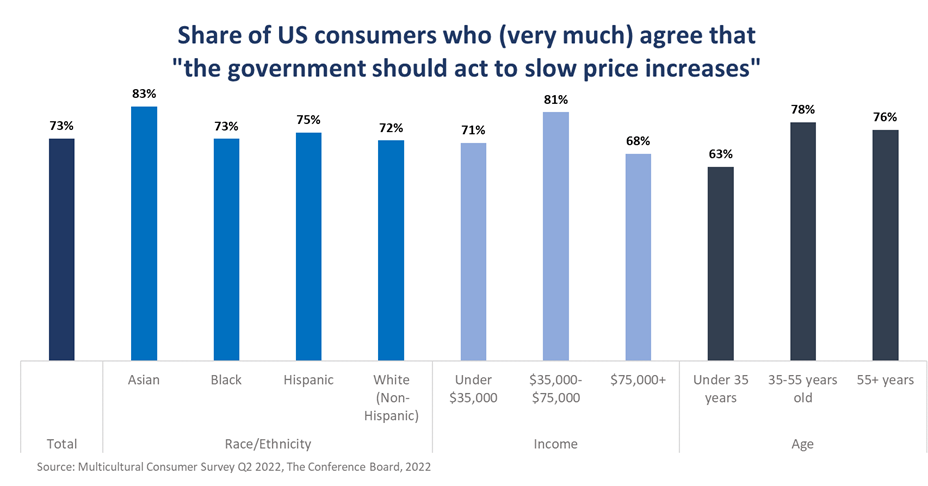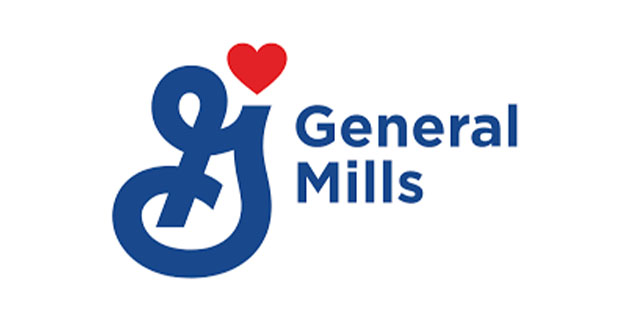What Can Governments Do to Slow Inflation?
July 12, 2022 | Report
|
This is one of a series of insight papers drawn from our latest wave of research into Multicultural Consumers in North America. For more insights into this topic, please visit: https://www.conference-board.org/topics/multicultural-consumer |
Regardless of race, income or age, our 2Q 2022 Multicultural Survey of 2000 Americans reveals that an overwhelming majority of US consumers canvassed believe the US government should do something to lower inflation. According to the latest inflation reports (BLS, BEA), prices are rising the fastest for food, energy, and shelter—all household necessities. Additionally, for those who like to have a bit of fun, costs for services like flights, hotels, restaurants, movies, streaming, and cell phones are also going up rapidly. But what can the government do? Indeed, some drivers of rising prices are outside of the realm of the current administration or central bank to tackle, but they are not without ammunition.
Regardless of Race, Income, or Age, Consumers Want the Government to Slow Inflation

Why Are Prices Rising So Fast?
Food and energy prices are rising because of production and shipping disruptions of grains, oil, and natural gas caused by the war in Ukraine. Although the conflict is on the other side of the world, prices are determined at a global level. Hence the price of groceries are up 11 percent compared to a year ago, and gasoline is averaging almost $5/gallon. Shelter costs (e.g., rent, heating, and cooling) are going through the roof because the war is boosting prices for energy, but also because rents and imputed rents (i.e., the rent a homeowner would receive if she rented out her house) reflect skyrocketing prices for new and existing homes. Low interest rates and shortages of building materials and c
This publication is exclusive to members of The Conference Board.
For information about membership click here.











